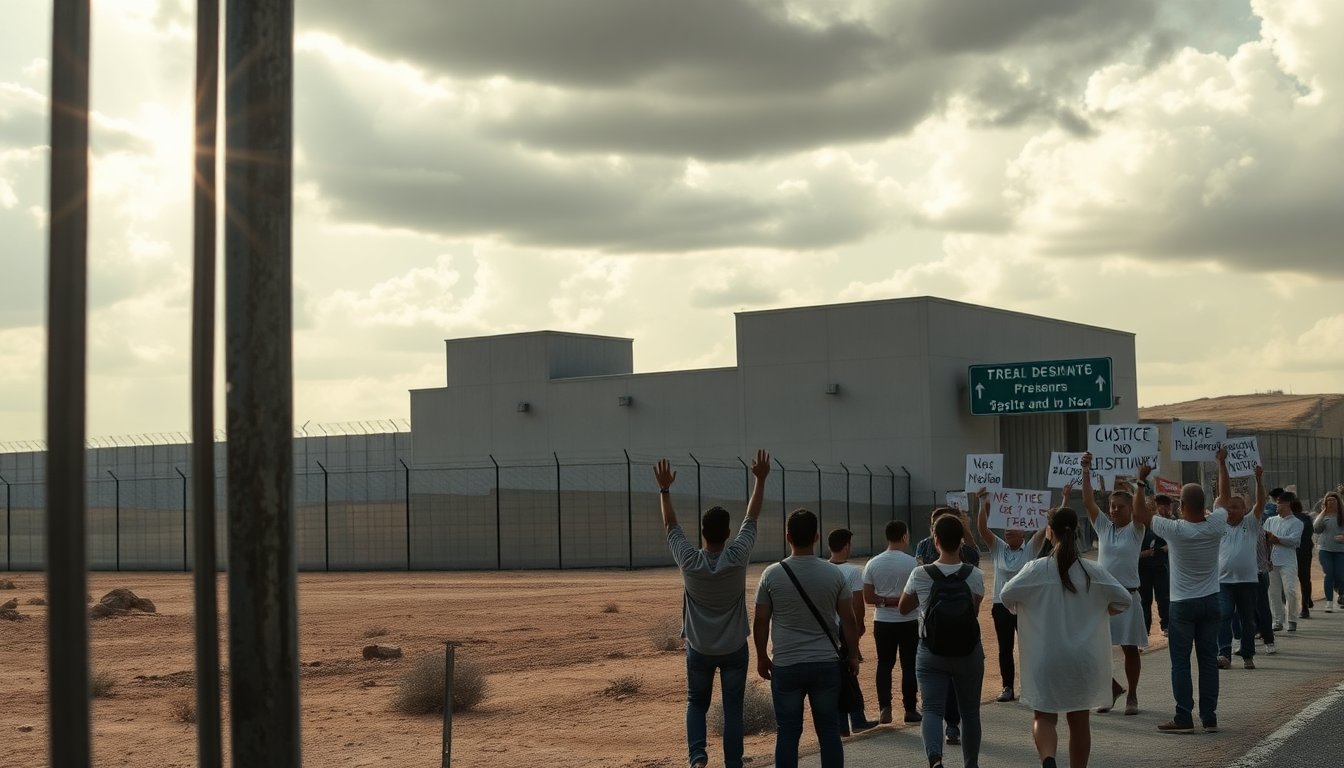Table of Contents
The Israeli Supreme Court issued a landmark ruling concerning the treatment of Palestinian security prisoners, marking a rare instance where the highest court has held the government accountable during an ongoing conflict. This decision arises amidst increased scrutiny of conditions in Israel’s detention facilities, particularly regarding the basic needs of prisoners.
The Context of the Ruling
Since the conflict escalated nearly two years ago, Israel has detained thousands of individuals suspected of ties to Hamas. Many of these individuals have been released without charges after prolonged detention. The court’s ruling specifically addressed allegations that these prisoners have faced inadequate food, leading to malnutrition and starvation conditions.
The Supreme Court’s decision resonates with concerns voiced by various human rights organizations about detainee treatment. Reports have emerged detailing systemic abuses, including insufficient access to food, inadequate healthcare, and poor sanitary conditions. These issues have culminated in tragic incidents, including the death of a 17-year-old Palestinian boy in March, which was reported to be linked to starvation.
The Legal Implications
Sunday’s ruling followed a petition from the Association for Civil Rights in Israel and the rights group Gisha. These organizations highlighted a troubling shift in food policy following the conflict’s escalation, claiming it has led to a deterioration in prisoners’ health and well-being. The court’s unanimous decision mandated that the state must ensure all prisoners receive sufficient food to maintain a basic standard of living.
This ruling not only emphasizes the legal obligations of the Israeli government but also serves as a crucial reminder of the importance of upholding human rights, even in national security contexts. The panel of justices stressed that the state cannot neglect its responsibilities toward individuals in its custody, regardless of the circumstances of their detention.
Future Considerations and Broader Implications
The implications of this ruling extend beyond immediate prison reform. It highlights a growing recognition of the need for accountability within the Israeli judicial system, particularly regarding the treatment of vulnerable populations. National Security Minister Itamar Ben-Gvir’s previous comments about reducing prisoners’ living conditions to the bare minimum required by law have drawn significant backlash, suggesting a need to reevaluate such policies.
As the situation evolves, monitoring the government’s response to the Supreme Court’s directive will be essential to determine whether substantive changes will be implemented. This ruling could potentially pave the way for broader reforms in prisoner treatment, fostering a more humane approach aligned with international human rights standards.


